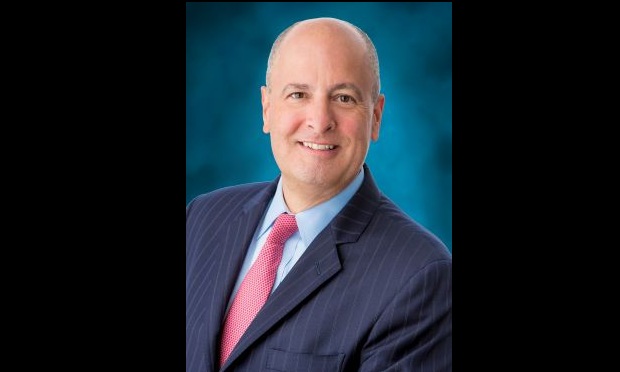NU Online News Service, May 21, 10:27 a.m. EDT
The Senate late Thursday night passed historic legislation making the most sweeping changes to financial services regulation since the Depression by a vote of 59-39.
The key components of the bill for the insurance industry, H.R.-4173, Wall Street Reform and Consumer Protection ACT, include provisions giving authority to the Federal Reserve Board to regulate such nonbanks as insurers under certain circumstances and creation of an Office of National Insurance (ONI) within the Treasury Department.
The bill will now go to a formal conference with the House to reconcile differences between the House and Senate, which is likely to start as early as next week. Rep. Barney Frank, D-Mass., chairman of the House Financial Services Committee, said he hoped work on a final bill would be finished by June 30.
Under both the House and Senate bills, the Fed would be given oversight of a troubled insurer if a Financial Stability Oversight Council composed mostly of federal regulators determined that a nonbank constituted a potential systemic risk to the financial system.
Representatives of property and casualty insurance groups voiced support that financial services reform retains state regulation of insurance.
At the same time, trade group officials said they would continue to monitor the bill as it proceeds to final passage to ensure that more onerous regulation of insurers is not added to the legislation as House and Senate negotiators craft final legislation.
In a statement, Leigh Ann Pusey, president and chief executive officer of the American Insurance Association, said, "The regulatory reform bill that the Senate passed appropriately recognizes that the property and casualty insurance industry does not pose systemic risk."
She noted that existing state-based resolution mechanisms remain in place and policyholders remain protected by the state guaranty fund system.
Robert Rusbuldt, president and CEO of the Independent Insurance Agents and Brokers of America, voiced gratitude that the Senate financial services regulatory reform legislation (as does the House bill) leaves day-to-day regulation of the insurance market at the state level.
"Property and casualty insurers played no role in creating the crisis and pose no systemic risk to the overall economy," Mr. Rusbuldt said. "In fact, the state regulatory system, while in need of more uniformity and efficiency, has a proven track record of ensuring insurer solvency, industry competition and growth, and consumer protection."
Ken Crerar, president and CEO of the Council of Insurance Agents and Brokers, noted with satisfaction that the Senate decided not to vote on an amendment that would have forced banks to divest themselves of all insurance-related activities they conduct directly.
"Insurance sales–as opposed to underwriting–present no systemic financial risk whatsoever and have no relation to the meltdown that precipitated this congressional effort," Mr. Crerar said.
Jimi Grande, senior vice president of federal and political affairs for the National Association of Mutual Insurance Companies, said, "The final product of the Senate is not a perfect bill, but it is one that for the most part recognizes the unique nature of insurance and respects the state-based regulatory system."
David Sampson, president and CEO of the Property Casualty Insurers Association of America, said members are concerned about the final Senate bill, but appreciate improvements made by the House and Senate.
Among the concerns, he said, is that the bill could "still impose [upon insurers] real burdens on an industry that has remained stable through the financial crisis." It should include the modest federal authority in the House provision creating a Federal Insurance Office and should better distinguish "state-regulated insurers in the provisions relating to assessments and proprietary trading," he said.
A critical difference between the House and Senate bills that will be the subject of intense lobbying by the insurance industry is that the House bill sets up a $150 billion fund to be prefunded by all financial institutions. The money would be used by a Resolution Authority managed by the Federal Deposit Insurance Corporation to pay for the resolution of a troubled financial institution that poses a systemic risk to the financial system.
The Senate bill mandates no such fund.
Insurers are lobbying for a provision that would exempt nonbank financial services subject to liquidation or rehabilitation under state law from any assessments by federal regulators to pay for resolving systemically risky financial institutions.
Under both bills, states retain authority to regulate the business of insurance and insurance activities are exempt from oversight by the new Consumer Financial Protection Agency.
However, the Senate bill gives strong authority to the new ONI to preempt state law in negotiating bilateral trade pacts regarding insurance with foreign countries. The House version gives states strong authority to negate such preemption.
The ONI would have the authority to compile data on insurance companies and the industry itself in both versions of the bill.
It will also have the authority to serve as an early-warning system that would determine if an insurance company was troubled, and recommend that the Fed and a new Systemic Risk Council place it under supervision.
Both bills contain similar language reforming and modernizing the surplus lines and reinsurance markets by establishing the rules of a domiciliary state to govern regulation and tax assessment of these products.
The Senate bill contains other provisions that would subject insurance companies to greater regulation of their derivatives activities and limit to some extent investment activities conducted by insurers that own banks or thrifts.
The House provisions mandate far less oversight of these activities.
This story was updated at 2:22 p.m. EDT
Want to continue reading?
Become a Free PropertyCasualty360 Digital Reader
Your access to unlimited PropertyCasualty360 content isn’t changing.
Once you are an ALM digital member, you’ll receive:
- Breaking insurance news and analysis, on-site and via our newsletters and custom alerts
- Weekly Insurance Speak podcast featuring exclusive interviews with industry leaders
- Educational webcasts, white papers, and ebooks from industry thought leaders
- Critical converage of the employee benefits and financial advisory markets on our other ALM sites, BenefitsPRO and ThinkAdvisor
Already have an account? Sign In Now
© 2025 ALM Global, LLC, All Rights Reserved. Request academic re-use from www.copyright.com. All other uses, submit a request to [email protected]. For more information visit Asset & Logo Licensing.








